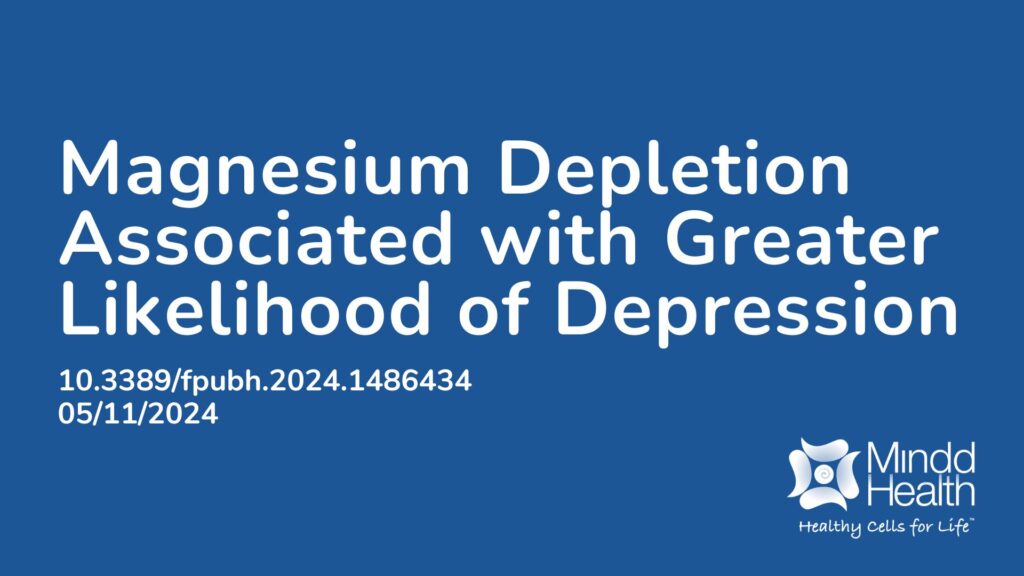Summary:
Depression is a widespread mental health disorder characterized by symptoms such as low self-esteem, reduced energy, loss of confidence, and increased suicide risk. Current therapies often have side effects and poor adherence, prompting interest in non-drug options such as micronutrient supplementation. Magnesium, an essential nutrient involved in stress response and neurotransmitter regulation, has shown benefit in improving depression symptoms. Traditional measures of magnesium status, like serum levels or dietary intake, do not reliably reflect the body’s magnesium stores. To address this, Fan et al. developed the Magnesium Depletion Score (MDS), which assesses whole-body magnesium deficiency by considering factors that affect kidney magnesium absorption. The MDS has been linked to various health conditions but has not been studied in relation to depression. This study analyzed data from 13,197 US adults to explore the association between MDS and depression. Results showed that higher MDS values were significantly associated with increased odds of depression. Specifically, each one-point rise in MDS corresponded to a 13% greater likelihood of depression. These findings suggest that magnesium depletion is linked to depression risk. Addressing magnesium deficiency may offer benefits for preventing and managing depression.
Abstract:
Background: The Magnesium depletion score (MDS) serves as a novel metric for quantifying magnesium deficiency in the human body, comprehensively assessing four indicators: diuretic use, proton pump inhibitor use, estimated glomerular filtration rate, and alcohol abuse. However, there have been no studies examining the potential association between MDS and depression. Methods: The study population for this cross-sectional study comprised adults from the National Health and Nutrition Examination Survey database from 2009 to 2018. Participants with a score of 10 or above on the Patient Health Questionnaire-9 were defined as having depression. We employed multivariable logistic regression models to investigate the association between MDS and depression. Furthermore, subgroup analyses were conducted to assess potential differences in this association among populations with diverse characteristics. Results: A total of 13,197 participants were included in this study. After adjusting for all covariates, a significant positive correlation was observed between MDS and depression. Specifically, for every unit increase in MDS, the likelihood of developing depression increased by 13% (OR = 1.13, 95% CI: 1.04–1.22, p = 0.0025). This positive correlation was consistent across MDS groups, with a 19% increase in depression likelihood in the medium group (OR = 1.19, 95% CI: 1.01–1.41, p = 0.0404) and a 58% increase in the high group (OR = 1.58, 95% CI: 1.21–2.07, p = 0.0007), using the low subgroup as a reference. Subgroup analyses revealed significant differences in the relationship between MDS and depression across races, marital statuses, and hypertension status. Conclusion: Our study has uncovered a significant positive association between MDS and depression. Reducing MDS in individuals may play a positive role in both the prevention and treatment of depression.
Article Publication Date: 05/11/2024
DOI: 10.3389/fpubh.2024.1486434



